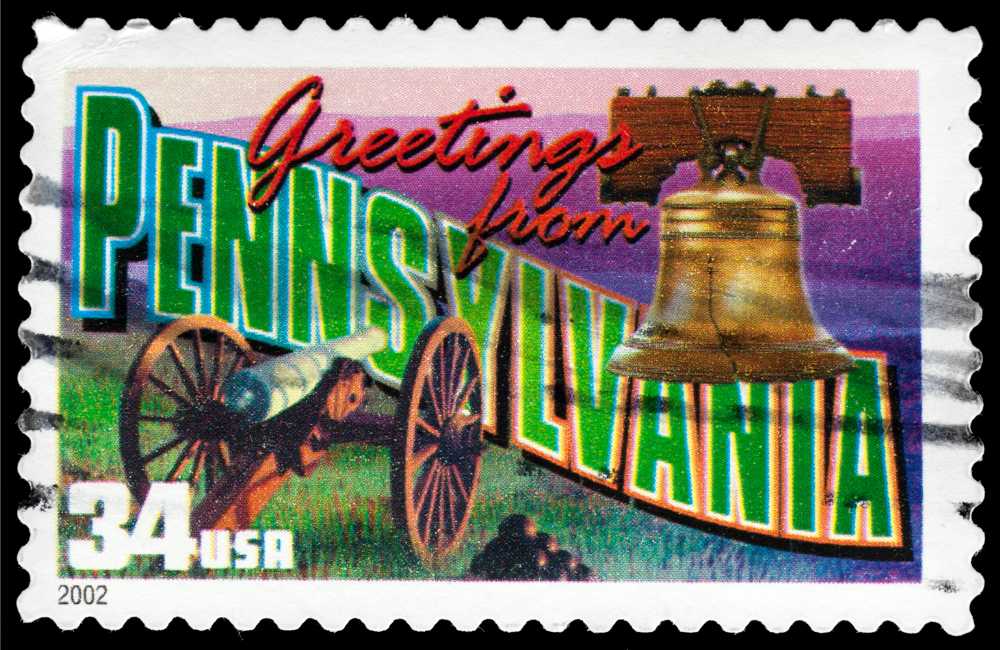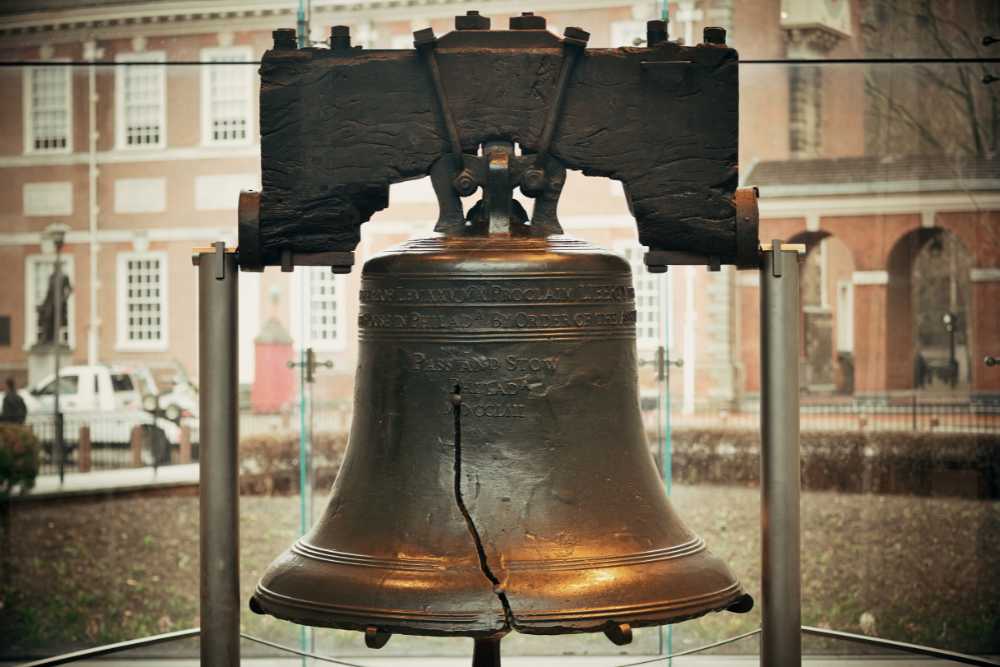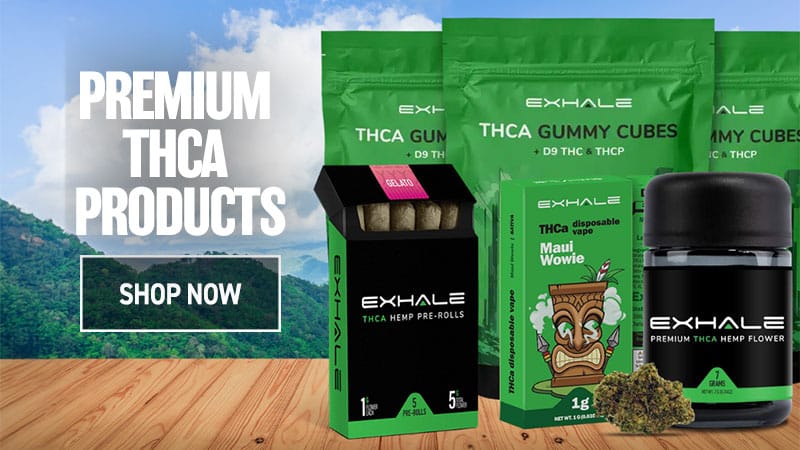There’s been a lot of buzz lately about THCa (Tetrahydrocannabinolic Acid, THCA, THC-a, or THC-A) and whether it’s legal in Pennsylvania. If you’re curious about THCa, knowing where it stands legally in the state is important. With different laws at the federal and state levels, figuring out, “Is THCa Legal in Pennsylvania?” can get pretty confusing. Keep reading to discover what you need to know about THCa in Pennsylvania so you can make informed choices.
Understanding the legal landscape of THCa in Pennsylvania is important for anyone interested in cannabis products, whether for medical or personal use. This blog will break down the complexities of THCa laws. We’ll also examine THCa’s potential health benefits, scientific background, and what the future might hold for its regulation in the Keystone State.
Pennsylvania Law vs. Federal Law on Cannabis Products
Is THCa legal in Pennsylvania? Yes, it is! All hemp-derived THCa products that have a total THC concentration of 0.3% or less at the point of sale are legal in Pennsylvania.
However, it’s crucial to understand that when heated — whether through smoking, vaping, or baking — THCa naturally converts into THC through a process called decarboxylation. This transformation can push THC levels in otherwise legal THCa hemp products beyond the legally permitted limit.
While hemp-derived THCa products are legal, consumers should be mindful of the potential legal risks tied to THC conversion. The situation is more nuanced than it may seem, so let’s explore the nuances of federal versus state law.

Federal Law Perspective
When it comes to cannabis products, federal and state regulations are pretty strict. The Controlled Substances Act classifies marijuana as a Schedule I drug, meaning it’s considered illegal and has no accepted medical use. However, the Farm Bill of 2018 changed things a bit by making hemp plants and hemp-derived products legal as long as they contain less than 0.3% Delta 9 THC on a dry-weight basis.
So, is THCa federally legal? Based on the federal government’s legal definitions, only hemp-derived THCa products that have a total THC content of 0.3% are federally legal. Marijuana-derived THCa products have illegal status at the federal level.
Pennsylvania State Law Perspective
Pennsylvania aligns its hemp regulations with the 2018 Farm Bill guidelines. The story is different when it comes to marijuana, which, as of this writing, is illegal. Although Pennsylvanians cannot consume it recreationally, it can be taken medicinally.
Pennsylvania’s medical marijuana program allows patients with certain conditions to use marijuana. However, the laws don’t clearly explain where hemp-derived THCa, after it’s decarboxylated, fits, especially for people who aren’t part of the medical program. The state follows federal guidelines in many ways but also has its own set of cannabis laws. This creates a mix of regulations that can make it hard to know if using THCa, regardless of its cannabis plant source, is completely legal.
Given the fluid nature of cannabis laws, there is a chance that lawmakers could close this loophole, potentially making hemp-derived THCa products illegal. Whether anyone will take such bold action remains to be seen. For now, however, Pennsylvanians can legally enjoy hemp-derived THCa.
Read More : Is THCa Legal In Alabama
THCa Laws in Pennsylvania: What You Need To Know
Federal and state laws often cause confusion among residents, so we’re here to clarify things. Let’s break down everything you need to know about THCa, Pennsylvania regulations, and cannabis in the state. Here are five must-know facts every Pennsylvania resident should know.
Pennsylvania’s Hemp and Cannabis Laws
Pennsylvania permits the cultivation of hemp and the sale of hemp-derived products, provided they contain no more than 0.3% Delta 9 THC. State law aligns with the 2018 Farm Bill. As long as THCa products meet this threshold before sale, they are legal.
THCa and Medical Marijuana
If you’re part of Pennsylvania’s medical marijuana program, you may have access to medical cannabis products containing THCa. The state’s medical marijuana program is designed to help people with serious medical conditions. In its raw, unheated state, THCa is famous for its potential wellness and therapeutic benefits minus the euphoria of THC. When heated, THCa converts into full THC potency, offering powerful relief from discomfort and providing relaxing effects. It’s no wonder medical marijuana patients find THCa, whether hemp or marijuana-derived, useful.
THCa for Non-Medical Consumers
For those not in the medical marijuana program, the THCa legal status is less clear. While hemp products are generally permitted, THCa’s conversion into THC can provide benefits similar to medical cannabis but from legal hemp flower. However, non-medical consumers should be cautious and consider the potential legal risks of possessing or consuming THCa products after heating.
Enforcement and Interpretation
Law enforcement in Pennsylvania might interpret THCa laws differently depending on the situation. If they believe a THCa product is intended to be used in a way that creates THC, it could lead to legal trouble. This uncertainty in enforcement makes it important for consumers to stay informed and cautious.
Legal Risks of THCa
Consuming or possessing THCa comes with some risks. If you’re not part of the medical marijuana program, there’s a chance that law enforcement could view your THCa product as a controlled substance, especially if it can convert to high levels of THC when heated. It’s crucial to understand these risks before deciding to consume THCa.

Potential Health Benefits and Uses of THCa
THCa is gaining widespread attention for its potential health benefits, which differ from those of THC due to its non-euphoric nature. Here are some ways THCa might be beneficial.
Supports Healthy Stress Response
THCa is thought to support a healthy response to bodily stress. While it’s by no means a treatment or a cure, THCa may help those looking for natural ways to manage aches or discomfort associated with daily activities.
Potential Neuroprotective Qualities
Researchers have found that THCa might possess neuroprotective properties. This could make it an option for those interested in supporting brain health, though clinical evidence is still emerging.
Digestive Support
THCa might offer digestive support for some individuals. It’s worth exploring for those who experience occasional digestive discomfort, but it’s important to consult a healthcare provider before making THCa a part of your wellness routine.
General Wellness
Incorporating THCa into a wellness routine might offer subtle benefits for overall health. While it’s not a miracle compound, it could complement other healthy lifestyle choices.
The Science Behind THCa
Understanding the science behind THCa can help consumers make informed decisions about its use and potential benefits. Here’s a simplified breakdown of THCa from a scientific perspective.
THCa: A Non-Euphoric Cannabinoid
THCa is a precursor to THC, the euphoric compound found in cannabis. In its natural state, THCa is non-euphoric, meaning it does not produce a “buzz.” It is found in raw cannabis and must undergo a process called decarboxylation to convert it into THC.
Decarboxylation: Turning THCa into THC
THCa is abundant in raw cannabis and is the precursor to THC. When exposing raw cannabis flower to heat through smoking, vaping, or cooking, THCa undergoes decarboxylation, which removes a carboxyl group, converting it into THC, the natural compound responsible for the euphoric effects of cannabis. This transformation is why THCa, in its raw form, does not cause a buzz, but when heated, it does.

Differences Between THCa And THC
THCa is the acidic form of THC and occurs naturally in raw cannabis plants. It is non-euphoric and is believed to have various health benefits. THCa must be converted to THC through decarboxylation to produce euphoric effects.
THC, on the other hand, is the compound responsible for the euphoric effects of cannabis. It occurs naturally in cannabis flower that has been dried and heated. THC is often sought after for its recreational and potential medicinal properties. It is the most abundant cannabinoid in marijuana plants and the most popular worldwide.
Chemical Differences Between THCa and THC
The primary difference between THCa and THC is their chemical structure. THCa has an additional carboxyl group that is removed during decarboxylation. This difference affects how the compounds interact with the body’s endocannabinoid system. THCa does not bind to the endocannabinoid system receptors in your brain. Therefore, it produces no euphoria. THC binds to these same receptors, producing the iconic euphoria enthusiasts enjoy.
Read More :Is THCA Legal?
Legal Implications
The legal status of THCa and THC varies. While THC is strictly regulated, THCa’s legality hinges on its potential to convert to THC, its intended use, and which cannabis plant it’s sourced from. Understanding these differences is crucial for compliance with state and federal laws.
Future of THCa Regulations in Pennsylvania
The legal landscape for THCa is constantly evolving, and upcoming regulations could affect its availability and use in Pennsylvania. Here’s what to watch for as THCa regulations continue to develop in the state.
Evolving State Legislation
As more states legalize cannabis and its derivatives, Pennsylvania may update its laws to reflect these changes. Lawmakers are likely to assess how THCa fits into the broader cannabis industry and whether more specific regulations are needed for hemp-derived products.
Federal Influence on Local Laws
Federal regulations play a significant role in shaping state laws. Changes at the federal level, such as the reclassification of marijuana or updates to the Farm Bill, could impact the legality of THCa in Pennsylvania. The interplay between state and federal laws will continue to influence how THCa is regulated in the Keystone State.
Industry Advocacy and Consumer Demand
The cannabis industry and consumer advocacy groups are pushing for clearer regulations and greater access to cannabis products, including THCa. Increased demand for these products may influence future legal decisions and regulatory updates. As consumer interest grows, the pressure on legislators to provide clear guidelines will likely increase, potentially leading to more defined legal standards for THCa products.

FAQs About THCa Legality in Pennsylvania
How Does Pennsylvania Regulate THCa Products?
Pennsylvania regulates THCa products under its hemp and medical marijuana programs. Hemp-derived products must contain less than 0.3% THC, while medical marijuana products are available to registered patients. The state’s approach to THCa can vary based on its potential to convert to THC and the intended use of the product.
Does THCa Show Up in a Drug Test?
Yes, THCa can show up on a drug test because it is a THC metabolite. THCa itself is not typically the target of standard drug tests. However, because THCa shares a similar chemical structure to THC and can convert to THC when heated, it may trigger a positive drug test result. This depends on the test’s sensitivity and how the THCa was taken.
Can Possessing or Consuming THCa Result in Psychoactive Effects?
In its raw form, THCa has a non-psychoactive nature. However, if THCa is heated and converted to THC, it can cause psychoactive effects. Consumers should be aware of how they use THCa products to avoid unintended intoxication.
Is THCa Covered Under Pennsylvania’s Medical Marijuana Program?
Yes, Pennsylvania’s medical marijuana program covers THCa. Registered patients can access products containing THCa from licensed dispensaries. These products are regulated and must meet specific guidelines to ensure safety and compliance.
What Happens if THCa Converts to THC?
If THCa converts to THC through heating, the product may induce euphoria and be subject to different legal regulations and potential consequences. This conversion can impact the product’s legality and its effects on the consumer. Consumers should always be mindful of how they store and consume THCa products.
Final Thoughts – Is THCa Legal in Pennsylvania? [5 Important Insights Into PA’s Legal Landscape]
The legal status of THCa in Pennsylvania is complex and influenced by federal and state laws. But if you’re wondering if THCa is legal in Pennsylvania, the answer is yes, it is as long as products containing the cannabinoid are hemp-derived and have a total THC concentration of 0.3% at the time of purchase. While hemp-derived products are generally legal, the potential for THCa to convert to THC creates a potential gray area. Consumers should stay informed about evolving regulations and purchase products from reputable cannabis brands that comply with federal and state laws.
As the cannabis industry continues to evolve, Pennsylvania may see changes in its legal framework regarding THCa. Advocacy efforts and consumer demand will likely significantly shape future regulations. In the meantime, visit our THCa products page to shop for premium THCa flower in Pennsylvania! We’ll ship it discreetly to your door. Not into smoking? We also offer vapes and gummies — all federally legal and ready for you to enjoy!
Editor’s Note: The information provided on this site is intended solely for general knowledge and should not be interpreted as legal advice or a comprehensive review of current laws. We do not guarantee the accuracy or dependability of the legal details shared here, nor is it designed to influence decisions regarding our products. Laws differ across states and are subject to frequent updates, which means the content may not always reflect the most current legal standards. To ensure compliance, we encourage consulting a qualified attorney in your area or the location where you plan to ship products.




